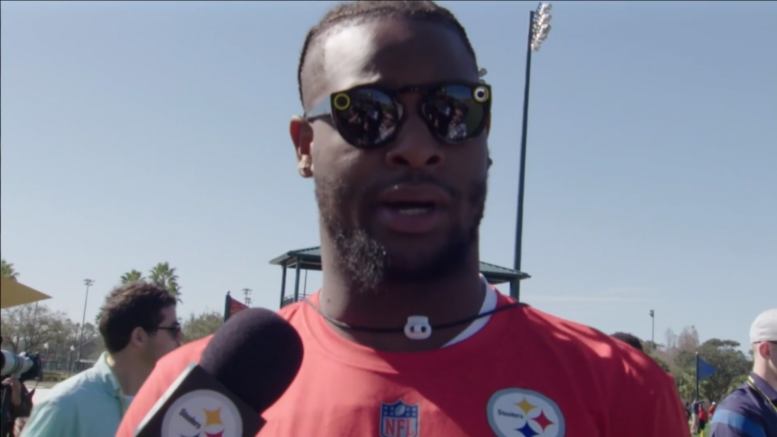I don’t know how this makes sense, but provided that it’s properly sourced, I think it’s worth passing along anyway. According to Pro Football Talk, the Pittsburgh Steelers would still be entitled to have running back Le’Veon Bell fit into their 2019 compensatory pick formula if they were to rescind the franchise tag.
This is in spite of the fact that the deadline for players being signed counting for or against a team’s compensatory register came and went back in May. Which is why so many teams—particularly the Baltimore Ravens—wait until after that deadline to make additions to their roster.
While there is already precedent for teams recouping compensatory picks after rescinding the franchise tag on a player—the Carolina Panthers got a third-round pick after doing so with Josh Norman—the difference in his and Bell’s case is that the former came prior to the deadline.
So why is a franchise tag different from an unrestricted free agent that shields it from the deadline? I have no idea, and Mike Florio’s article provides no explanation either. He cites sources with “knowledge” and “extensive knowledge” in the article in his efforts to confirm that it is indeed the case without actually explaining why it is.
Of course all of this is moot for multiple reasons, not the least of which being because the Steelers are not going to rescind the tag and also have no reason to do so. They are already getting their money back from Bell on a weekly basis for every game he chooses not to show up.
They are also reportedly considering the possibility of trading him, but the point that Florio was arguing was that whatever the Steelers get back in a trade would have to be worth more than they could get from just rescinding the tag.
However, he also writes per the “extensive knowledge” source that the team would actually not be in line for a compensatory pick with the loss of Bell in 2018 because of the signings of Morgan Burnett and Jon Bostic, the only significant loss being Chris Hubbard.
Of course, a lot of sources with “extensive knowledge” of the compensatory pick formula come up wrong pretty regularly, so I’m not exactly going to bet the farm on the idea of Burnett and Bostic cancelling out Hubbard and Bell, both of whom, hypothetically, would have surely signed bigger contracts.
As far as relevant information goes, the Steelers currently figure to be in-line for a compensatory pick as it relates to Bell due in 2020, assuming that he signs a contract in free agency in 2019. What the value of that pick will be—or if they even get one—will depend upon what the team does in free agency signing outside free agents, but they surely would give the potential return for Bell some thought in their own moves.








